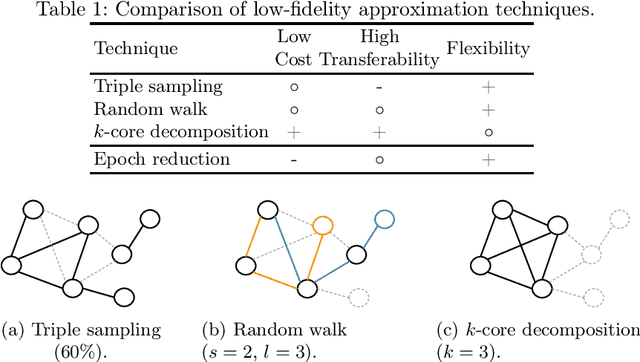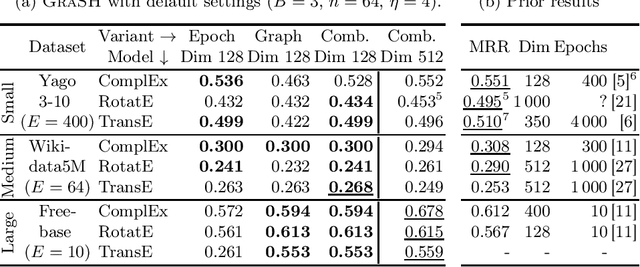Fritz Niesel
Start Small, Think Big: On Hyperparameter Optimization for Large-Scale Knowledge Graph Embeddings
Jul 11, 2022



Abstract:Knowledge graph embedding (KGE) models are an effective and popular approach to represent and reason with multi-relational data. Prior studies have shown that KGE models are sensitive to hyperparameter settings, however, and that suitable choices are dataset-dependent. In this paper, we explore hyperparameter optimization (HPO) for very large knowledge graphs, where the cost of evaluating individual hyperparameter configurations is excessive. Prior studies often avoided this cost by using various heuristics; e.g., by training on a subgraph or by using fewer epochs. We systematically discuss and evaluate the quality and cost savings of such heuristics and other low-cost approximation techniques. Based on our findings, we introduce GraSH, an efficient multi-fidelity HPO algorithm for large-scale KGEs that combines both graph and epoch reduction techniques and runs in multiple rounds of increasing fidelities. We conducted an experimental study and found that GraSH obtains state-of-the-art results on large graphs at a low cost (three complete training runs in total).
 Add to Chrome
Add to Chrome Add to Firefox
Add to Firefox Add to Edge
Add to Edge